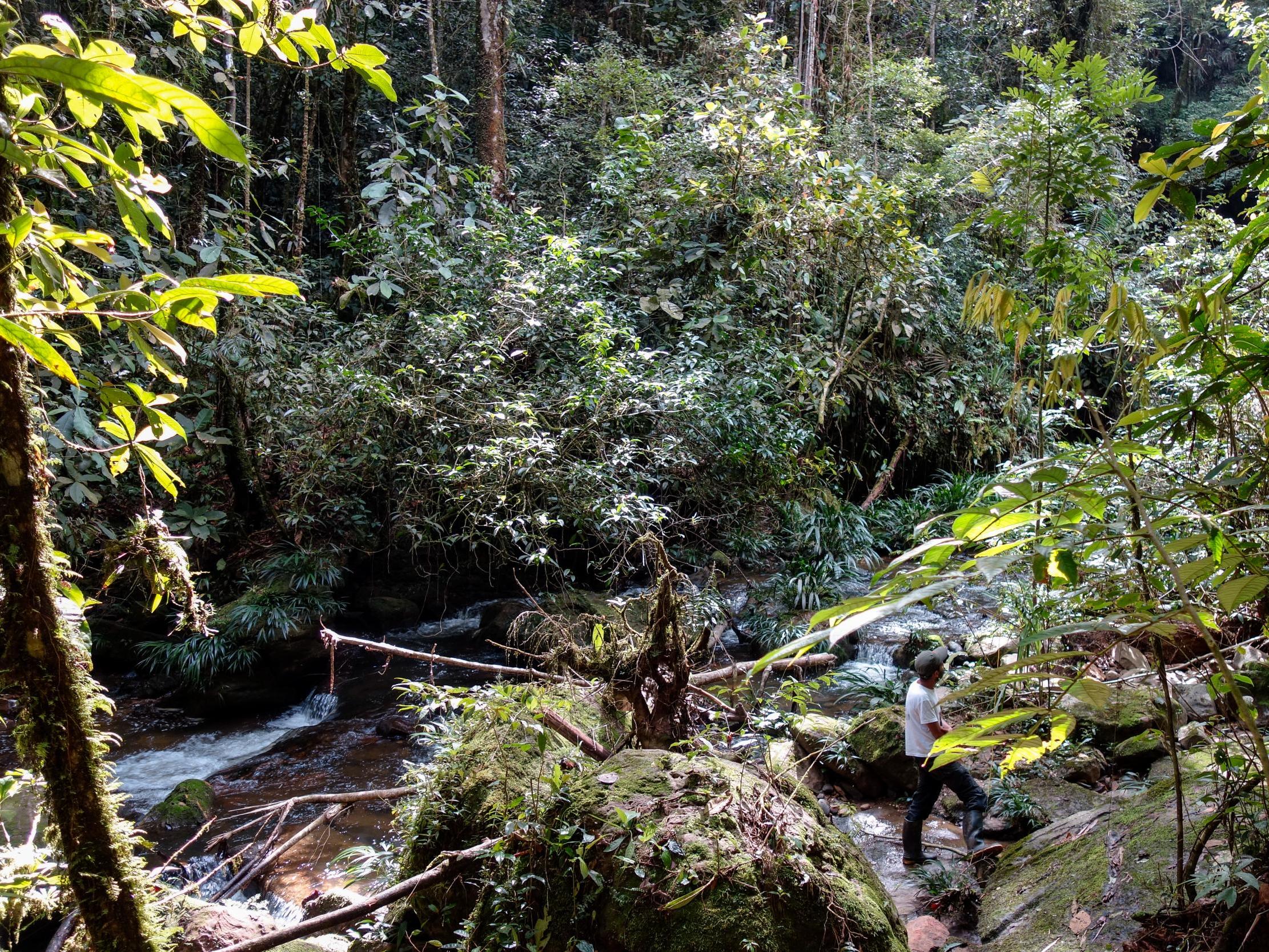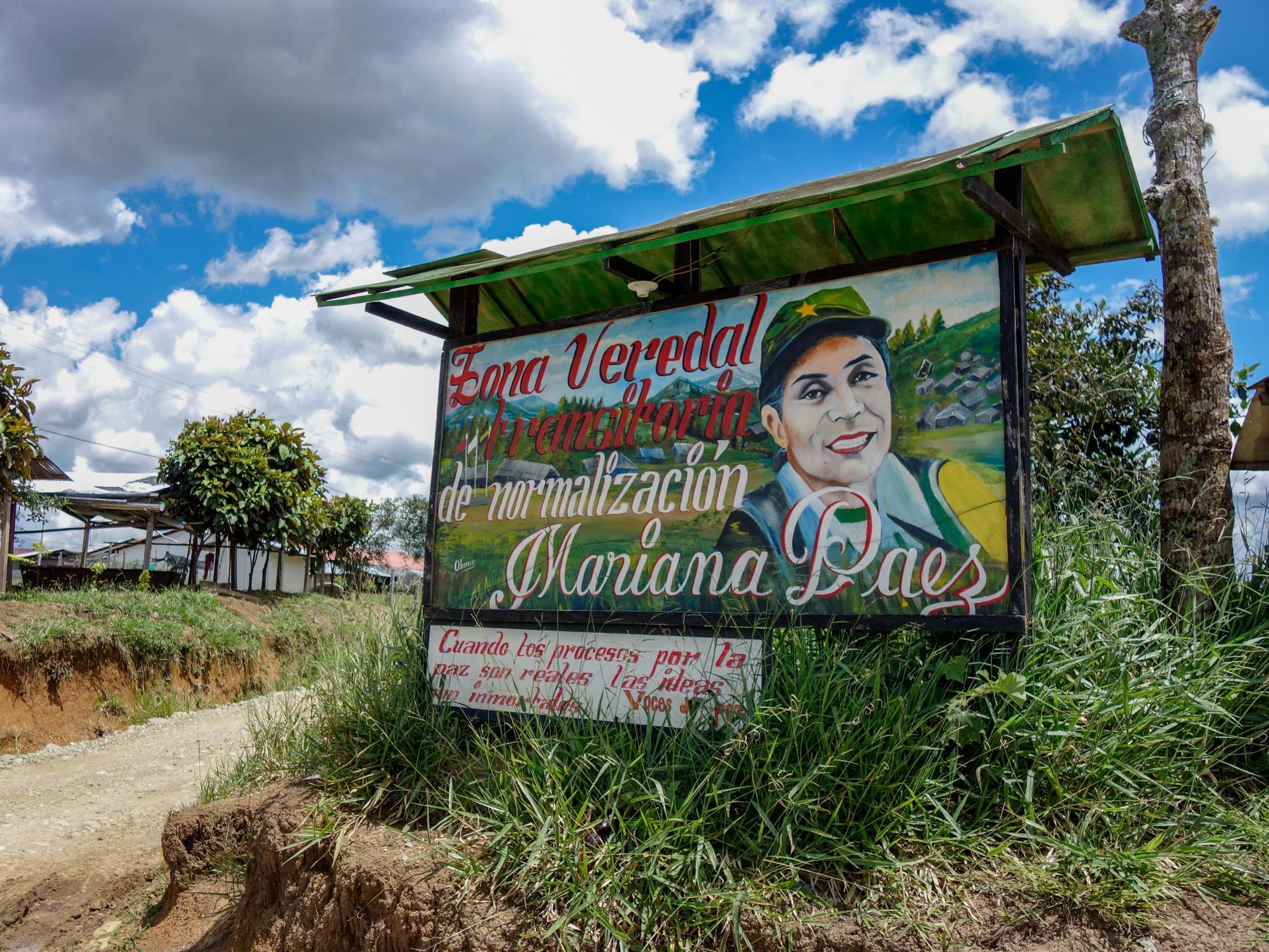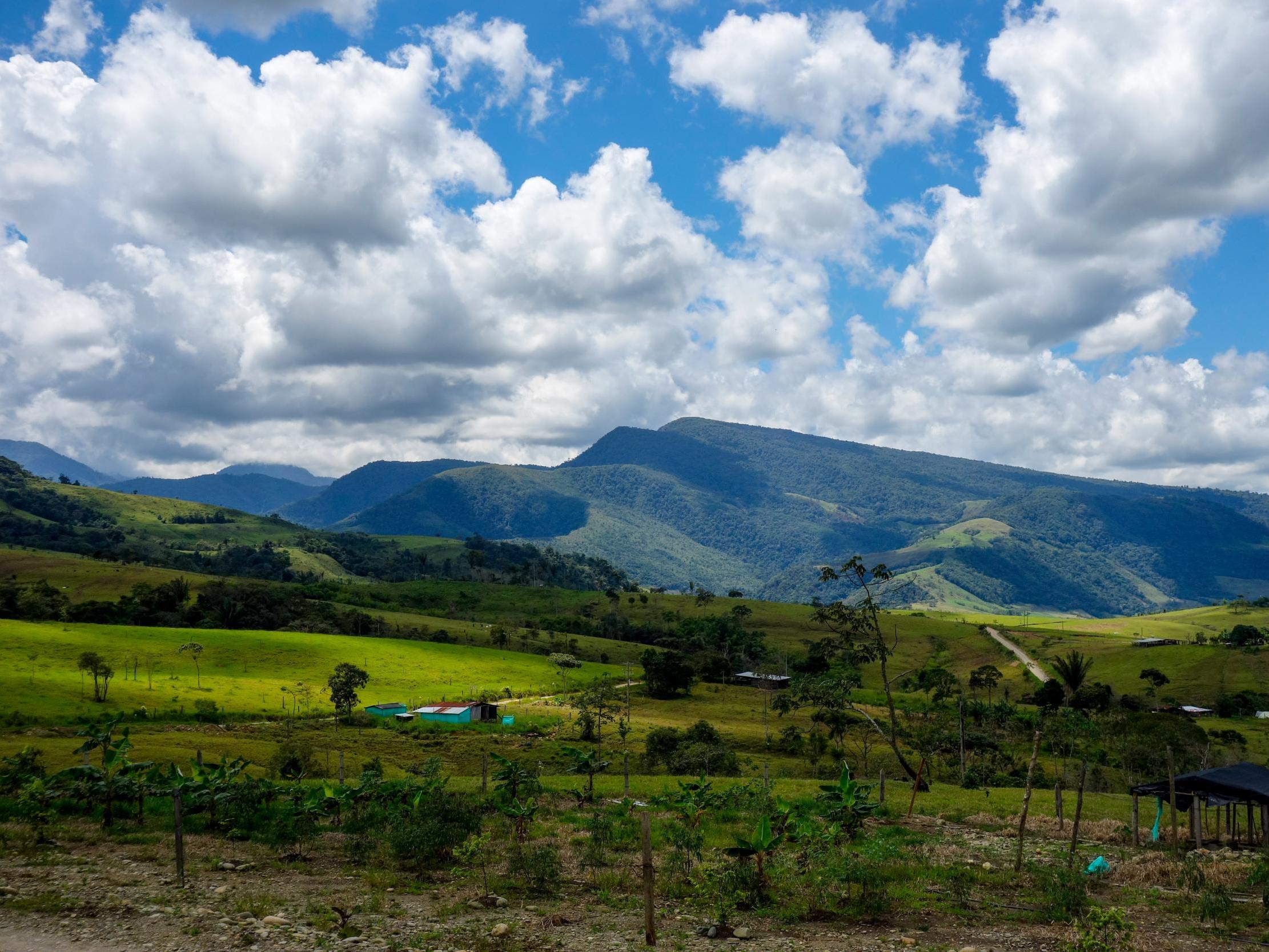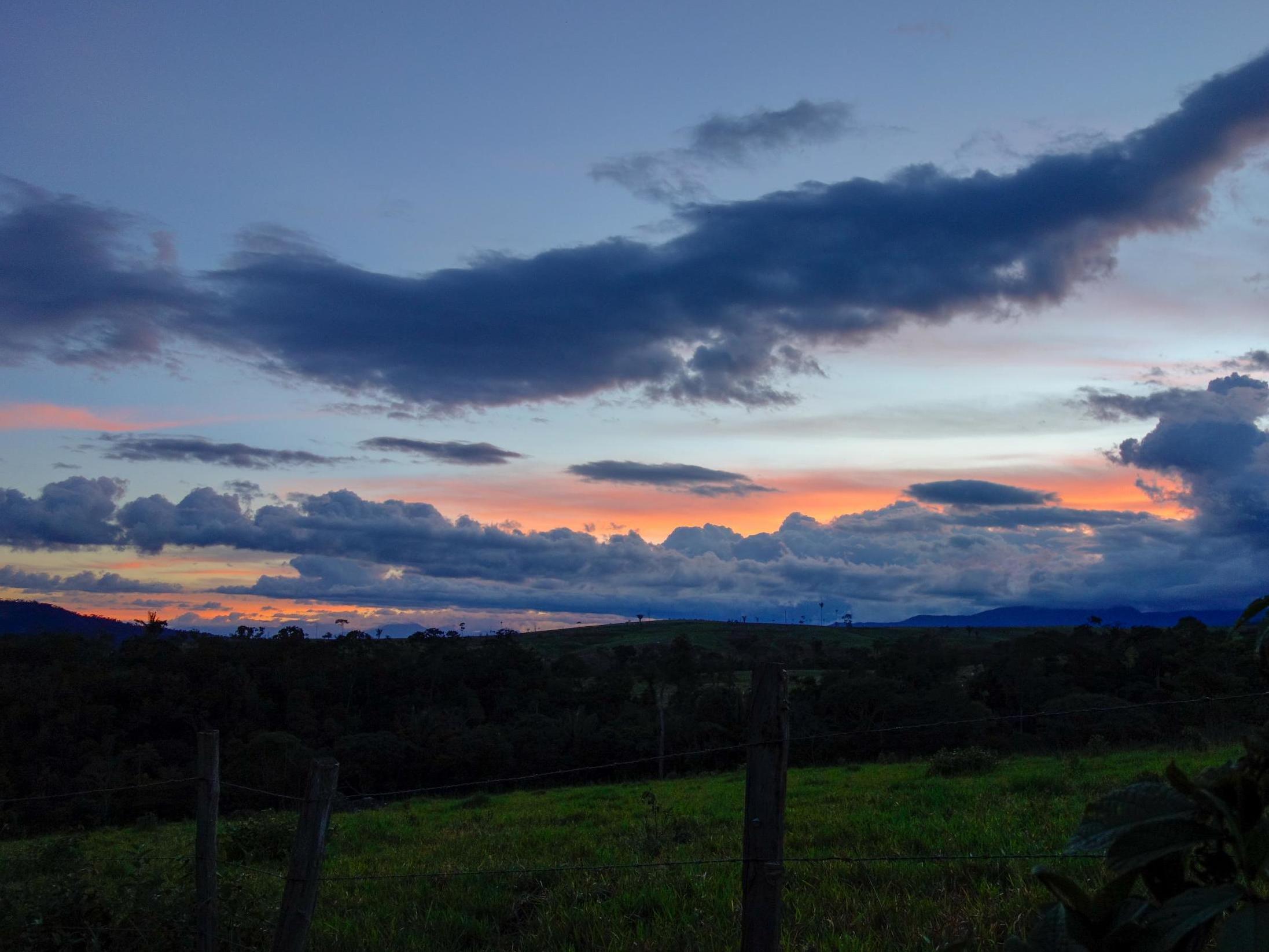The former Farc rebels using their jungle knowledge to become tour guides
Initiative is aimed at reintegrating ex-fighters into civilian life and ensuring they don't slip back into combat mode

Your support helps us to tell the story
From reproductive rights to climate change to Big Tech, The Independent is on the ground when the story is developing. Whether it's investigating the financials of Elon Musk's pro-Trump PAC or producing our latest documentary, 'The A Word', which shines a light on the American women fighting for reproductive rights, we know how important it is to parse out the facts from the messaging.
At such a critical moment in US history, we need reporters on the ground. Your donation allows us to keep sending journalists to speak to both sides of the story.
The Independent is trusted by Americans across the entire political spectrum. And unlike many other quality news outlets, we choose not to lock Americans out of our reporting and analysis with paywalls. We believe quality journalism should be available to everyone, paid for by those who can afford it.
Your support makes all the difference.“Look, monkeys!”, says today’s enthusiastic 24-year-old tour guide, with an infectious grin of excitement, acknowledging the family of white-faced Colombian squirrel monkeys endemic to the country’s tropical plains. “The Belgian [tourist] didn’t see them, you’re very lucky!”
Confidently scaling the rocky incline down to a local waterfall, he stops suddenly and nods his head towards the jungle periphery.
“That’s two in the space of 200 metres”, he says, pointing to yet another stream cutting through the forest undergrowth. “Colombia is too rich!”
Visitors to Meta – and many others regions of Colombia – are indeed fortunate to be able to witness such natural wonders.
Colombia’s diverse range of ecosystems, from dense Amazonian forests to Caribbean mangrove swamps and ice-capped mountain ranges, make it the second most biodiverse nation in the world (Brazil is top), but half a century of conflict has meant much of the country has long been off limits for tourists.
This remote area of the Meta region – 90 minutes via a bumpy dirt track from the nearest small town – was formerly a stronghold for the Revolutionary Armed Forces of Colombia (Farc), a rebel group fighting to overturn the state. Until recently it was inaccessible even to the police and armed forces.
But since 7,000 Farc members demobilised as part of their historic peace agreement with the government in late 2016, that has begun to change. The accord signed in Havana, Cuba, formally ended 52 years of conflict that left an estimated 220,000 people dead and more than 7 million displaced.
Individuals like our guide, who once belonged to the group’s urban faction in the capital of Bogota, now hope Colombia’s rich and largely undiscovered ecosystems can open up to the world.
“The war for so many years made foreigners scared to visit,” he says. “But the world needs to see this.”
They also hope that the country’s forests can offer them a new life path as the group moves from armed rebel insurgency to a legitimate political party.
The war for so many years made foreigners scared to visit ... But the world needs to see this
Our guide is one of a number of individuals at the Mariana Paez Farc reincorporation zone in Mesetas who hope ecotourism could be the best way to utilise their unique knowledge and skills, and in the process reconstruct civilian lives, assimilate into society and ultimately subsist.
Twenty-six such zones were established across the country as part of the peace accord to prepare former combatants for civilian life.
This project, Ambientes Para la Paz, or ‘Environment for Peace’, is open for business but the group are currently finalising their market research and applying for additional funding for its development.
“We have to offer the market something new, or do it better than the competition”, explains Luz Marina Giraldo, a senior ex-combatant who fought for decades across Colombia and is now leading the project.

The project was initially funded by the Norwegian Refugee Council, but the collective is now in the process of applying for European Union funding to accelerate the initiative.
The funds, once they hopefully come in, will go towards the development of the Farc hotel and restaurant, both of which are situated in the Farc reincorporation zone in which 260 ex-combatants and their families currently reside.
Those who want the “full guerrilla experience” will not be concerned with the development of the hotel: they will be camping outside without light or running water, sleeping in beds made of leaves, handwashing their clothes, bathing in rivers and eating typical guerrilla dishes from makeshift ovens – just as the former rebels once did.
Accompanying the tourists on horse rides, wildlife excursions and waterfall treks are Farc guides. As many have spent most of their life living in – and living off – some of the most remote regions of Colombia, their knowledge of its flora and fauna is unparalleled.
Ex-combatants have been identified by various organisations as ideal candidates for ecological conservation and have already taken part in various state-funded scientific expeditions to document undiscovered species.
“More than their knowledge of the environment, it’s their knowledge of how to live off the land and how to survive according to circumstances,” Giraldo says. “They know this better than anyone”.
The most important thing right now is guaranteeing ex-combatants an effective reincorporation
The project’s founders also hope to capitalise on an international fascination with the world’s oldest guerrilla group, while debunking “myths” surrounding it and educating the world on the root causes of the conflict.
“There is a lot of curiosity at an international level to learn what we are and how we think,” Giraldo says. “To take advantage of these things we thought of making a tourism project, but beyond a tourism project, a way of managing the subject of historical memory.”
“More than showing the waterfalls and the streams and all the natural things that are very important, and very beautiful, it’s showing people the culture, the real other side of the coin of what we are,” she says.

Although the peace agreement was a critical step in ending the conflict, hatred and stigmatisation of the Farc – due to their history of kidnapping, killing, drug-trafficking and child recruitment – hinders the path to reincorporation and reconciliation.
Several individuals at the zone say they have been rejected for work vacancies “for being guerrillas”. Others say they simply do not have the formal requirements – such as work experience or qualifications – necessary to secure a job.
It is hoped the tourism project will provide better job prospects and a future for those Farc members who face limited opportunities, reducing the appeal of joining rebel groups who refused to disarm.

“The most important thing right now is guaranteeing ex-combatants an effective reincorporation,” Giraldo says. “Seven thousand guerrillas handed in their weapons, but if the reincorporation process is not effective and successful, who guarantees that 5,000 of them won’t return?”
The long-term success of the project, however, will ultimately depend on the market appetite for such a venture.
Last year 6.5 million tourists visitedColombia, the largest number in its history and almost 1.5 million more than in 2016. This trend is promising, and foreigners who have not lived through Colombia’s dark civil conflict are less likely to be put off by Farc’s history – but will they be comfortable sharing a roof with those many deem to be terrorists, kidnappers or murderers?
“Every individual will think and believe as they wish,” Giraldo says. “The only thing we can do is open the doors to our house so they can come, they can get to know us, and later make their own decision.”
Join our commenting forum
Join thought-provoking conversations, follow other Independent readers and see their replies
Comments